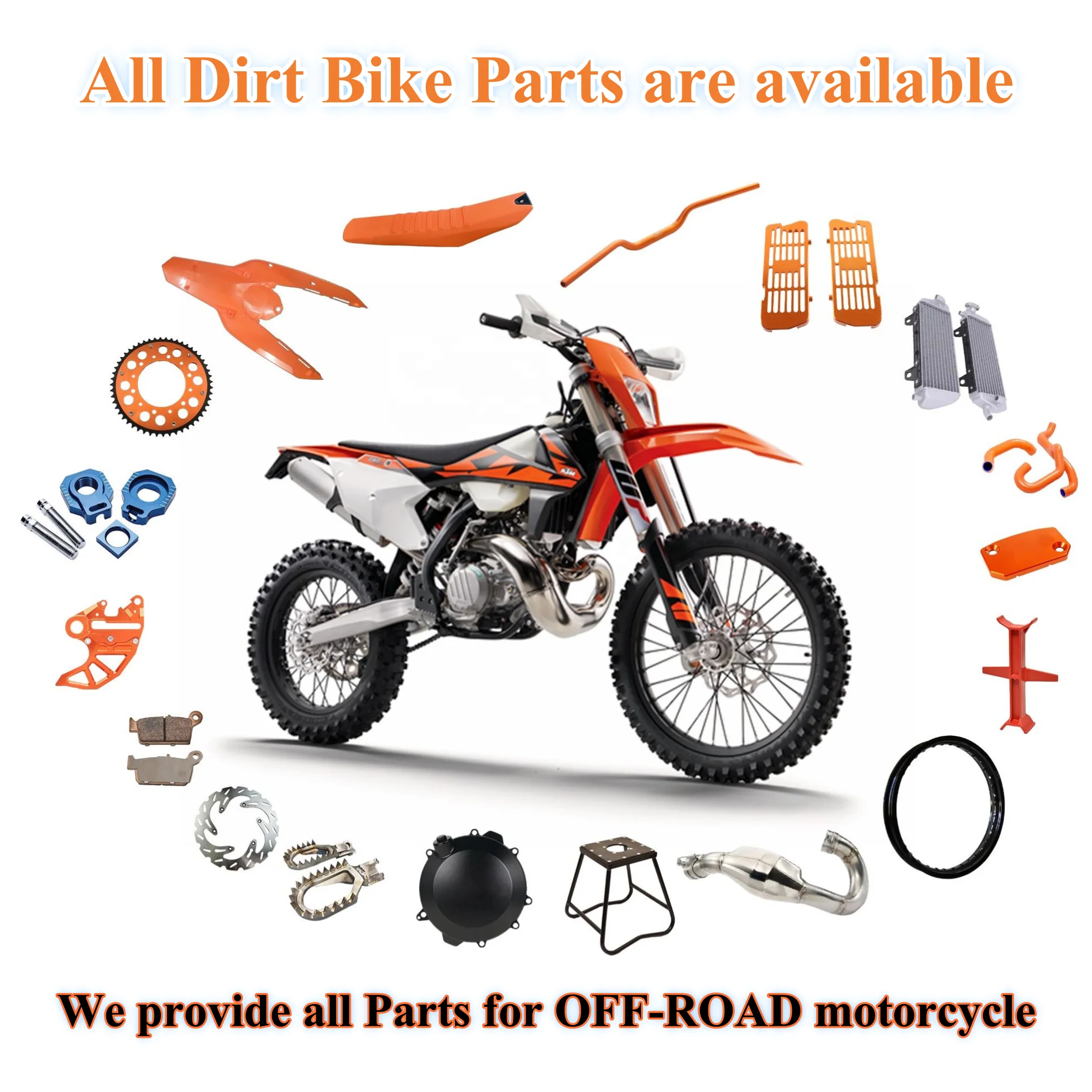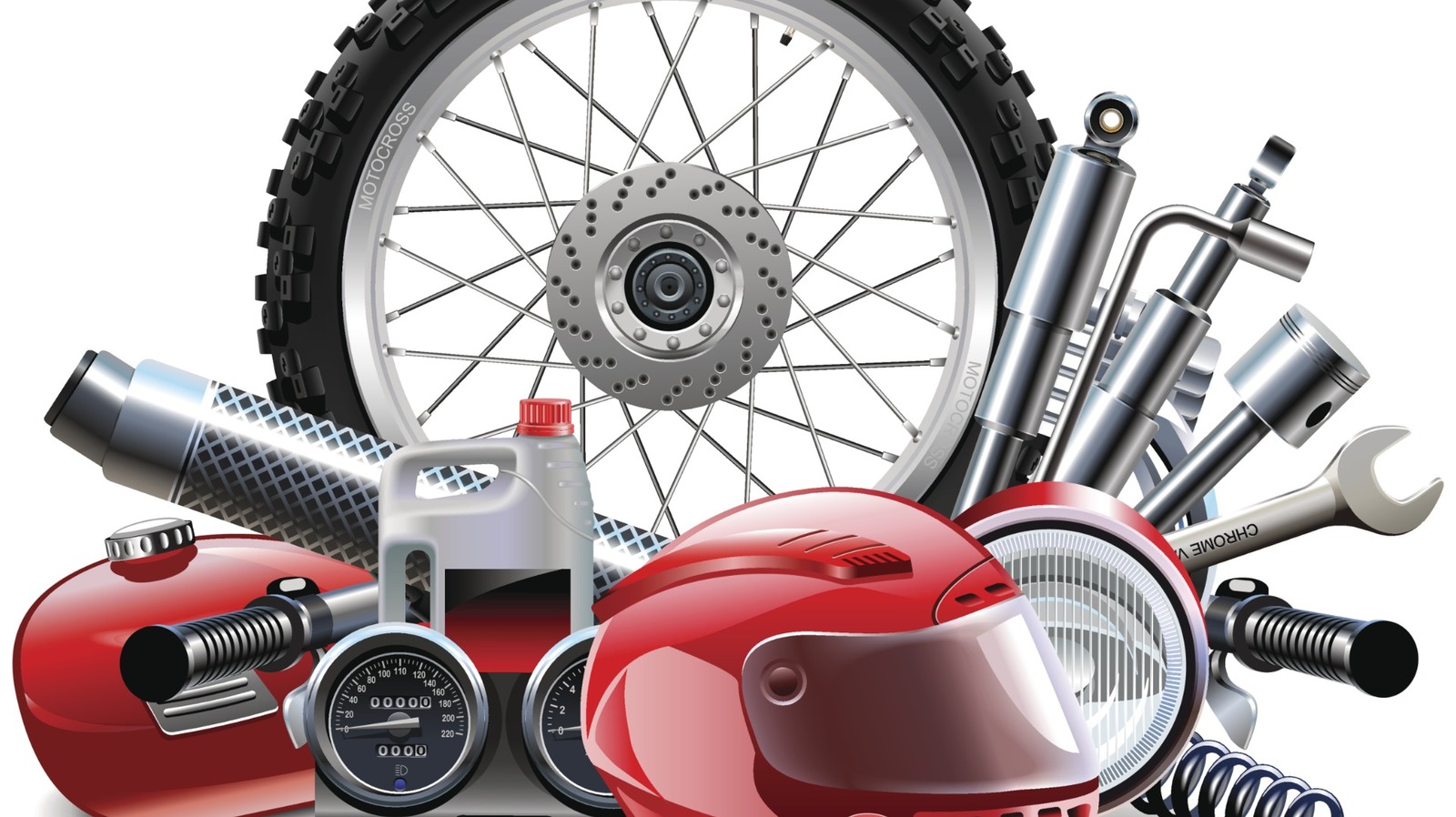Top 5 Motorcycle Parts Auckland for Riders in NZ
Wiki Article
Discover the Important MotorBike Parts You Need for Optimum Efficiency
Understanding the crucial parts of a bike is fundamental for achieving peak efficiency. Each element, from the engine to the stopping system, plays a crucial duty in overall performance and safety. Routine maintenance can protect against unexpected failures and boost the riding experience. Nonetheless, lots of motorcyclists forget the intricacies of these systems. Finding how they interact can bring about a more reliable adventure. What crucial parts should every rider prioritize?The Engine: The Heart of Your Bike
The engine functions as the core element of a motorbike, driving its efficiency and specifying its abilities. It is accountable for converting fuel into power, which powers the bike forward. Various sorts of engines are employed, including single-cylinder, V-twin, and inline configurations, each offering unique attributes suited for different riding designs and functions. The engine dimension, commonly gauged in cubic centimeters (cc), considerably affects performance, with bigger engines normally providing more power and torque.Furthermore, the engine's layout and technology, such as gas shot systems or air-cooling versus liquid-cooling, affect performance and integrity. Maintenance is necessary for peak operation; factors like routine oil changes and checking trigger connects guarantee longevity. Cyclists commonly think about an engine's responsiveness and smoothness, as these attributes boost the overall riding experience. Inevitably, the engine stays a vital element that specifies not just the motorcycle's performance yet likewise the biker's link to the equipment.The Transmission: Moving Gears Smoothly
The transmission plays an important role in a motorbike's efficiency, specifically in the auto mechanics of equipment shifting. Comprehending exactly how to change gears efficiently can enhance the overall riding experience, while routine maintenance guarantees peak functionality. Correct attention to these elements can substantially affect the long life and efficiency of the bike.
Gear Shifting Mechanics
Smooth gear changing is vital for ideal motorcycle efficiency, greatly impacting both acceleration and control. The auto mechanics of gear moving entail the communication between the clutch, equipment bar, and transmission system. When a rider engages the clutch, it disengages the engine from the transmission, enabling an equipment adjustment without harming the elements. A well-timed release of the clutch, combined with exact movement of the gear lever, helps with a seamless change between gears. This process ensures that the engine operates within its finest power band, boosting performance. Bike Parts Wellington. In addition, understanding the equipment proportions and their impact on speed and torque can help riders make educated options during shifts, inevitably adding to a more receptive and delightful riding experienceUpkeep Tips Relevance
Routine upkeep plays an essential role in assuring that the transmission system operates effectively, permitting smooth equipment shifts. Routinely inspecting and changing the transmission fluid is vital, as old fluid can result in increased friction and wear. In addition, checking the clutch for wear guarantees peak engagement and disengagement, protecting against slippage throughout gear changes. Lubrication of relocating parts is similarly crucial to minimize friction and improve performance. Bike owners ought to additionally keep an eye on for leaks and uncommon noises, as these can indicate underlying problems. By sticking to these maintenance tips, cyclists can lengthen the life-span of their transmission system, ensuring that equipment changes remain seamless and contributing to the total performance of their motorbike.The Braking System: Ensuring Safety And Security on Every Ride
Braking systems are essential parts that straight affect a motorcycle's safety and security and efficiency. They include different components, consisting of brake pads, rotors, calipers, and hydraulic lines, all collaborating to ensure effective deceleration. The kind of braking system-- usually either disc or drum-- influences responsiveness and quiting power.Regular maintenance is necessary to support peak performance; worn brake pads can cause decreased efficiency and increased quiting distances. Furthermore, the high quality of brake fluid should be kept an eye on, as it can take in dampness with time, endangering braking efficiency.Riders need to additionally think about the value of anti-lock braking systems (ABDOMINAL), which stop wheel lockup throughout abrupt stops, boosting overall security. Effectively functioning brakes are not almost quiting; they impart confidence in the biker, allowing for safer navigation with different surfaces. Eventually, a trusted stopping system is essential for appreciating every experience with peace of mind.The Suspension: Enhancing Convenience and Control
A well-functioning shock absorber greatly contributes to a motorcycle's general performance, matching the performance of the braking system. The suspension plays a significant duty in absorbing shocks from unequal surfaces, guaranteeing a smoother experience while preserving tire contact with the see here now road. This contact is essential for both security and control, allowing cyclists to browse corners with self-confidence and precision.Different kinds of suspension systems, such as telescopic forks or mono-shocks, use varying degrees of comfort and handling. Appropriately tuned suspension enhances responsiveness, supplying the cyclist with an extra linked feeling to the motorcycle. Normal maintenance checks are necessary to identify the suspension parts, including dampers and springs, are working at their finest. An effective suspension system not just elevates the riding experience but additionally adds to the durability of other motorbike parts by reducing wear and tear. As an outcome, buying high quality suspension is crucial for any kind of major motorcycle fanatic.
The Tires: Attaching You to the Roadway
Tires play a vital function in a motorbike's performance, functioning as the key link between the rider and the road. Understanding the various kinds of tires readily available can significantly influence handling and safety. In addition, routine maintenance is crucial to guarantee peak tire efficiency and durability.Tire Types Explained
Exactly how do various tire types influence a motorbike's efficiency? Tire kinds play an important function in determining a motorcycle's hold, stability, and handling. Sport tires, created for high performance, deal boosted grip and responsiveness on paved roads, making them excellent original site for competing and aggressive riding. Conversely, touring tires focus on toughness and convenience, giving a smoother experience for long-distance traveling. Off-road tires, characterized by their sturdy tread patterns, master traction on unpaved surfaces, appropriate for adventure lovers. Additionally, dual-sport tires mix features from both off-road and on-road categories, catering to functional riding demands. Inevitably, picking the appropriate tire type is important for enhancing performance, ensuring security, and enhancing the general riding experience.Upkeep Tips Offered
While riding when traveling, preserving ideal tire problem is crucial for safety and performance. On a regular basis examining tire pressure is essential, as under-inflated tires can cause poor handling and boosted wear. It is suggested to evaluate tread deepness regularly; worn tires concession grasp and security. Furthermore, cyclists must try to find indications of damages, such as fractures or bulges, which can show the demand for replacement. Rotating tires occasionally ensures also wear, enhancing durability. In addition, maintaining tires tidy from particles and preventing extreme visuals can prolong their life expectancy. Lastly, keeping correct placement and balance adds to come to a head performance, decreasing anxiety on other bike components. Complying with these upkeep pointers will greatly boost the general riding experience.The Fuel System: Sustaining Performance and Performance
The fuel system plays a vital function in maximizing a motorbike's performance and performance, as it ensures the optimal shipment of fuel to the engine. It consists of numerous important elements, consisting of the gas container, gas pump, fuel filter, and gas injectors or carburetor. Each component has to work effectively to ensure a powerful and smooth ride.The gas container shops fuel and provides it to the engine using the fuel pump, which generates the essential stress. A gas filter stops contaminants from getting in the engine, while the injectors or carburetor mix fuel with air for combustion.Proper upkeep of the gas system is critical; a blocked filter or malfunctioning injector can cause reduced efficiency and increased fuel intake. By validating that the fuel system operates successfully, motorcyclists can appreciate enhanced throttle reaction, far better fuel economic situation, and in general enhanced riding experience.The Electric System: Powering Your Adventure
An effective electrical system is essential for the general functionality and safety and security of a motorbike, as it powers critical parts such as the ignition, lights, and numerous electronic systems. This system includes the battery, which stores energy, and the generator, liable for generating power while the engine runs. The electrical wiring web link harness links these elements, making sure trustworthy power distribution.Additionally, merges protect the system from overloads, while relays aid regulate high-current devices with low-power signals. A properly maintained electrical system improves efficiency by making sure smooth begins and regular operation of lights and signals, crucial for rider exposure and safety.Regular checks of the battery's fee and connections are vital for avoiding electrical failings. Cyclists need to additionally inspect wiring for deterioration, making sure all parts work preferably. Inevitably, a robust electric system adds considerably to the overall efficiency and reliability of the motorcycle.Frequently Asked Concerns
Just how Usually Should I Replace My Motorbike's Battery?
The regularity of motorbike battery substitute depends on usage and upkeep (Oem Parts New Zealand). Normally, batteries should be changed every 3 to 5 years. Normal checks can help determine when a substitute is essential for peak efficiencyWhat Tools Do I Required for Fundamental Motorcycle Upkeep?
For basic bike upkeep, one requires crucial tools such as a socket collection, wrenches, screwdrivers, pliers, tire stress gauge, and a torque wrench. These devices facilitate reliable maintenance and ensure the bike runs efficiently and safely.Exactly How Can I Enhance My Motorcycle's The rules of aerodynamics?
To improve motorcycle aerodynamics, one ought to think about adjusting fairings, utilizing windshield expansions, maximizing body position, and minimizing total weight. These modifications aid minimize drag, enhancing stability and gas performance during adventures.What Are the Signs of a Failing Electric System?
Signs of a falling short electrical system consist of lowering lights, trouble beginning, irregular tool readings, and blown integrates. Motorcycle Parts Auckland. Uncommon smells or deterioration around battery terminals might additionally indicate underlying problems requiring prompt focus for safety and security and performance
Exactly how Do I Select the Right Oil for My Bike?
When choosing oil for a bike, one ought to take into consideration the maker's requirements, viscosity ratings, and the type of riding. Furthermore, conventional versus synthetic oil can affect efficiency and engine protection, influencing the choice considerably. The engine size, typically determined in cubic centimeters (cc), considerably influences efficiency, with bigger engines usually giving more power and torque.Furthermore, the engine's design and technology, such as fuel shot systems or air-cooling versus liquid-cooling, influence efficiency and reliability. A well-functioning suspension system considerably contributes to a motorbike's general performance, matching the effectiveness of the braking system. The fuel system plays an important role in optimizing a motorcycle's efficiency and effectiveness, as it guarantees the ideal shipment of fuel to the engine. A gas filter avoids pollutants from going into the engine, while the injectors or carburetor mix fuel with air for combustion.Proper maintenance of the gas system is vital; a clogged up filter or malfunctioning injector can lead to lowered efficiency and boosted fuel intake. A properly maintained electrical system boosts efficiency by guaranteeing smooth starts and constant procedure of lights and signals, vital for biker visibility and safety.Regular checks of the battery's cost and links are important for avoiding electric failings.Report this wiki page